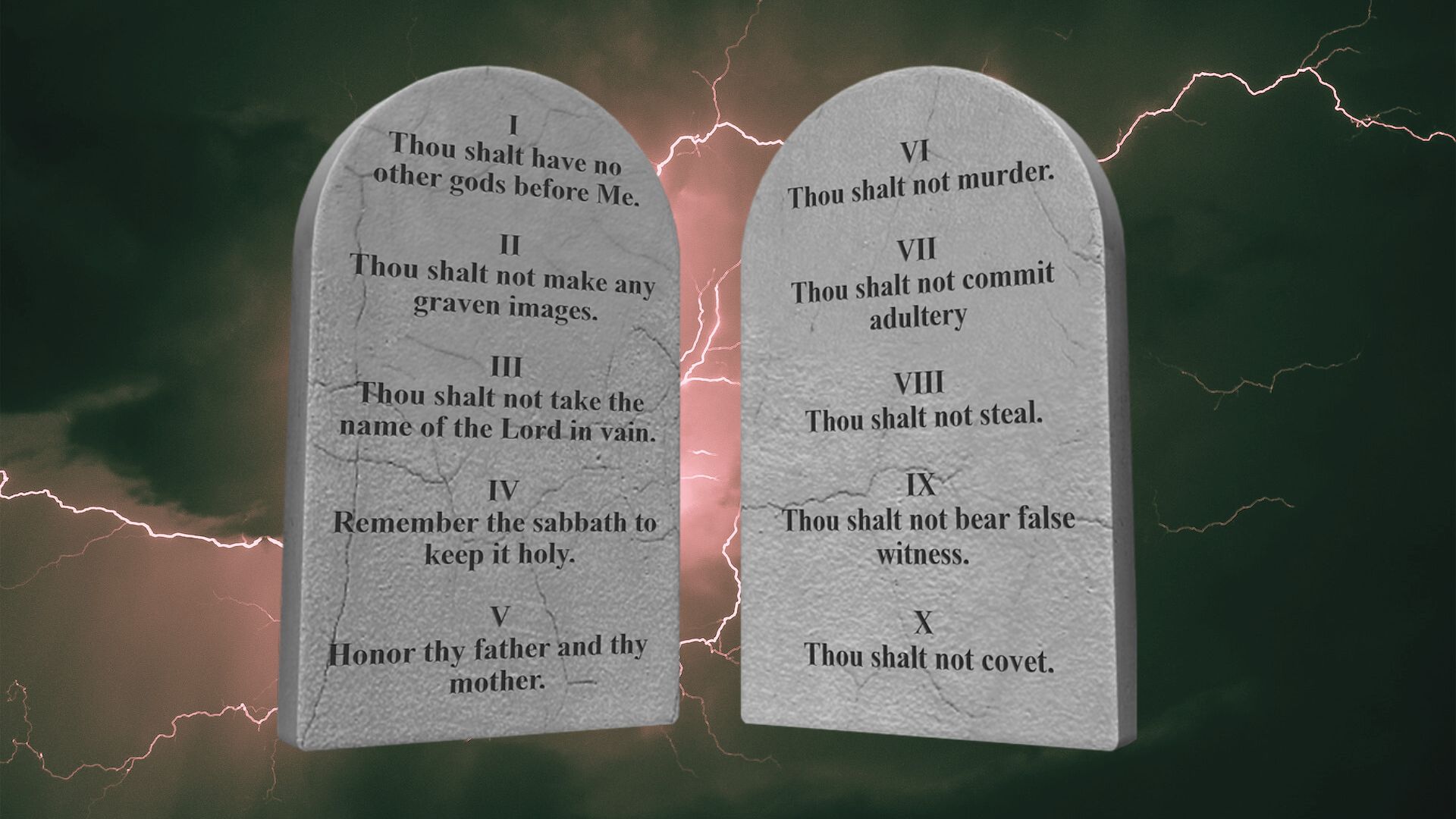The Ten Commandments constitute a list, not only of personal responsibilities, but also of inherent, God-given rights.
-
- Commandments 1-4 affirm both the responsibility and right to worship God according to His instructions.
- The Fourth Commandment affirms both the responsibility and right to rest periodically from work, as well as the responsibility and right to engage in regular, ongoing work.
- The Fifth Commandment upholds the responsibility to honor one’s parents, as well as the right to be honored as a parent by one’s children.
- The Sixth Commandment establishes both the responsibility to respect human life and an individual’s right to life.
- In the Seventh Commandment, we see an individual’s responsibility to respect the marriage relationships (and, by clear implication, the family relationships) of others. In this same Commandment, we also see one’s right to have his or her marriage relationship (and family relationships as well) recognized and respected by others.
- The Eighth and Tenth Commandments establish private property rights. They dictate that people have the responsibility to honor those rights with both their actions (the Eighth Commandment) and attitudes (the Tenth Commandment).
- The Ninth Commandment establishes, not just an individual’s responsibility to uphold (and to avoid distorting) the truth, but also his or her right an honest reputation.
A recognition of rights rooted in the Ten Commandments is essential to ordered liberty. Government has a duty to recognize and protect inherent, God-given rights. It does this by fulfilling its divinely assigned task of maintaining order in society (see 1 Tim. 2:1-4) by commending those who do right and punishing those who do wrong (see Rom. 13:1-7; 1 Pet. 2:13-17). The right and wrong in these passages are those things that are “good” and “evil,” respectively, according to God’s standard of righteousness.
Right and wrong are rooted in absolute truth, which is rooted in God’s holy character. In Isaiah 5:20-21 the inspired prophet declared,
20 Woe to those who call evil good
and good evil,
who put darkness for light
and light for darkness,
who put bitter for sweet
and sweet for bitter.
21 Woe to those who are wise in their own eyes
and clever in their own sight…
Copyright © 2024 by B. Nathaniel Sullivan. All rights reserved.
Scripture passages have been taken from The Holy Bible, New International Version®, NIV® Copyright © 1973, 1978, 1984, 2011 by Biblica, Inc.® Used by permission. All rights reserved worldwide.
Scripture passages also have been cited from the New King James Version®. Copyright © 1982 by Thomas Nelson, Inc. Used by permission. All rights reserved.
